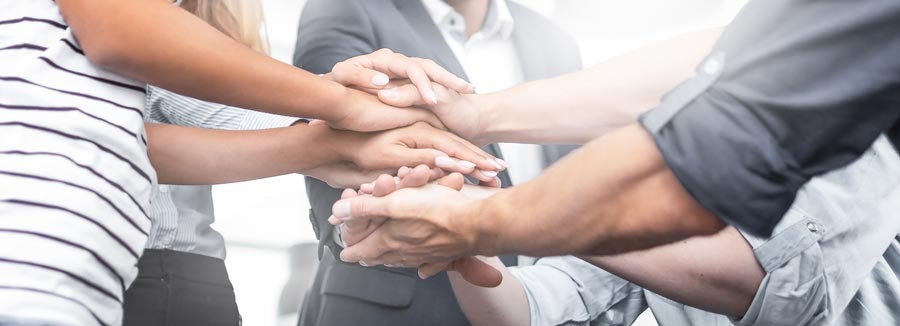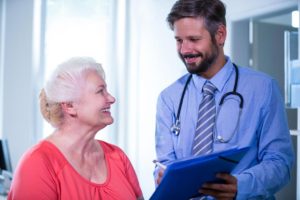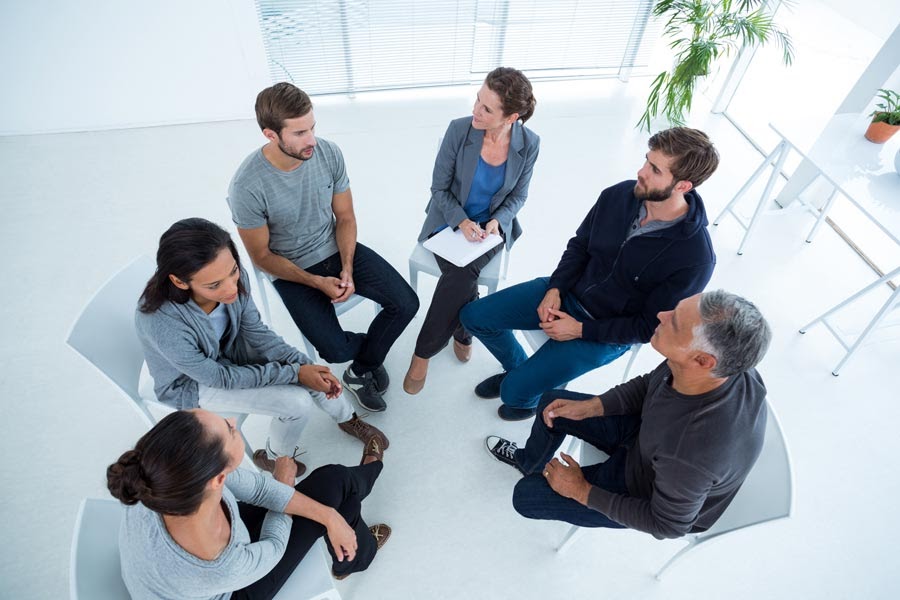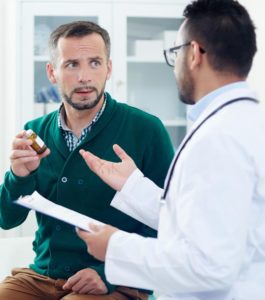Medication Assisted Treatment in Laconia, NH
Medication-assisted treatment (MAT) with Suboxone for opioid use disorder, right where you live.
 Better Life Partners is dedicated to helping people recover from opioid use disorder and meeting them in their community at the right time, with the right plan to achieve a better life. We offer addiction recovery services by traveling to where we are needed and working alongside community partners. But it’s about more than just driving to a town, setting up in a location, and heading back home after our day is over. We value everywhere we go and see each city as a wealth of new connections.
Better Life Partners is dedicated to helping people recover from opioid use disorder and meeting them in their community at the right time, with the right plan to achieve a better life. We offer addiction recovery services by traveling to where we are needed and working alongside community partners. But it’s about more than just driving to a town, setting up in a location, and heading back home after our day is over. We value everywhere we go and see each city as a wealth of new connections.
Better Life Partners Is Based Around Community
Through our partnerships with local organizations, we are given the opportunity to bring medication-assisted treatment (MAT) right to you. It means there could be one less roadblock to recovery for someone struggling with opioid use disorder (OUD) and a growing community to support them. The cities, towns, and locations we bring our services to in New Hampshire aren’t just the next step on a list for us. We know each place is someone’s home, it is where someone takes their daily drive or walk, or where they work to support a family. Better Life Partners recognizes each place we visit as a home.
Medication-Assisted Treatment (MAT) Can Make a Difference
According to the Substance Abuse and Mental Health Services Administration (SAMHSA) there were around two million people with OUD in 2018. They have conducted and compiled studies that show how medication-assisted treatment has been able to help prevent overdoses and aid people in continuing their recovery. There is even a study that showcased drastic decreases in overdoses once buprenorphine—one of the main prescription medications used in MAT—was introduced to the city of Baltimore. The city utilized buprenorphine, a drug that decreases or altogether eliminates the euphoria someone would feel from misusing opioids. One myth is that MAT utilizing buprenorphine, naloxone, or methadone is simply replacing one addiction with another, but this is untrue. When these medications are utilized properly they are not giving someone a euphoric, or “high” feeling, but rather limiting their ability to feel those things from opioids. We know it’s possible to help someone who is struggling with opioid addiction. You can recover and achieve a healthier life, trust us! Our commitment to meeting you in your community and to staying focused on recovery is based on the statistics and results we’ve seen. The treatment works, and we’re ready to have it work for you.
Let Us Guide You Through the Recovery Process
Medication-assisted treatment is a useful approach that is one part of the path to recovery we will take you along here at Better Life Partners. It’s not just about giving you a pill or a shot and sending you on your way. In order for you to get as much out of the treatment as possible, we are committed to employing therapy sessions and consultations with professionals. When you begin utilizing the treatment through Better Life Partners we will do some paperwork and get information from you, including insurance for those who are covered. If you are not covered by insurance we work to find resources that can help you and discover the way forward for your treatment.
just about giving you a pill or a shot and sending you on your way. In order for you to get as much out of the treatment as possible, we are committed to employing therapy sessions and consultations with professionals. When you begin utilizing the treatment through Better Life Partners we will do some paperwork and get information from you, including insurance for those who are covered. If you are not covered by insurance we work to find resources that can help you and discover the way forward for your treatment.
Therapy Goes Hand-In-Hand with MAT
After enrollment you will attend weekly group therapy sessions. Therapy plays an important role in your recovery and overall treatment. It is a way to ensure you have a reliable and committed peer community that can help you with coaching and companionship as you are heading toward your new life in recovery.  Group therapy offers another reminder that you are not alone and by addressing the mental and emotional, not to mention the social aspect of humans, you take one more step toward successful recovery from opioid addiction.
Group therapy offers another reminder that you are not alone and by addressing the mental and emotional, not to mention the social aspect of humans, you take one more step toward successful recovery from opioid addiction.
How MAT Works
 Medication-assisted treatment may utilize buprenorphine, methadone, or naltrexone. They are sometimes only referred to by their brand name, like Sublocade®, which is buprenorphine. Each medication can be administered a little differently than the next, so how you are taking it will sometimes depend on which MAT medication you are prescribed. Some MAT prescriptions are injected, some are given in pill or liquid form, and others are administered in small strips that dissolve on or under the tongue. Each of them is what’s called a partial- or complete-opioid agonist, which means they will block certain effects of opioids within a person’s body. Methadone, for instance, is listed by SAMHSA as a “long-acting opioid agonist” that helps to curb cravings and blocks the feelings of euphoria produced by taking opioids. Other forms of MAT offer these same benefits and potentially others, depending on which medication is prescribed. The main point of MAT is to allow someone to begin and sustain recovery from opioid addiction by decreasing the chances of relapse, lessening withdrawal symptoms, and allowing them to focus without struggling to manage cravings. Whether it’s MAT itself or the therapy we offer, each addiction treatment program is evidence-based. The results we see mirror the results seen in the studies conducted over years and years into the treatments being utilized.
Medication-assisted treatment may utilize buprenorphine, methadone, or naltrexone. They are sometimes only referred to by their brand name, like Sublocade®, which is buprenorphine. Each medication can be administered a little differently than the next, so how you are taking it will sometimes depend on which MAT medication you are prescribed. Some MAT prescriptions are injected, some are given in pill or liquid form, and others are administered in small strips that dissolve on or under the tongue. Each of them is what’s called a partial- or complete-opioid agonist, which means they will block certain effects of opioids within a person’s body. Methadone, for instance, is listed by SAMHSA as a “long-acting opioid agonist” that helps to curb cravings and blocks the feelings of euphoria produced by taking opioids. Other forms of MAT offer these same benefits and potentially others, depending on which medication is prescribed. The main point of MAT is to allow someone to begin and sustain recovery from opioid addiction by decreasing the chances of relapse, lessening withdrawal symptoms, and allowing them to focus without struggling to manage cravings. Whether it’s MAT itself or the therapy we offer, each addiction treatment program is evidence-based. The results we see mirror the results seen in the studies conducted over years and years into the treatments being utilized.
You Are the Reason We Visit Your Community

Better Life Partners offers our services by being in the community where you live. This allows us to meet you in your community, at the right time, with the right plan to achieve a better life. It’s a form of addiction treatment made possible due to all the amazing relationships we’ve built with community partners, like the ones we have in Laconia and all throughout New Hampshire. We approach addiction as a disease that can be examined, understood, and healed utilizing science and commitment. Humans are always learning more and more about ourselves, which means when the science of addiction changes, we change our treatment model. Knowing how to treat you is the first step. Knowing who you are and where you need us is the next. That’s why we make it a point to truly experience a city, to understand how it feels to be a part of somewhere like Laconia. We have squinted at the sun reflecting off both Lake Winnipesaukee and Winnisquam Lake and taken stroll after stroll through Ahern State Park. Motorcycle week has played a part in our lives just like it has this city’s, and that is because when we seek to enrich someone’s life through recovery we want to be all in.
At Home and At Peace
A sense of home comes along with a sense of belonging. We’ve found both in Laconia thanks to all the wonderful people we’ve met and the opportunities we’ve had to help someone achieve a healthier life. We treat every day as another chance to guide someone toward recovery and to know them a little better. Now we’d like you to know us a little better! We prize all of our partners and have many we utilize, from research, to referral services, to recovery aid. Every one of them exists as a part of a community already, and we are honored to be brought into that network when we bring our services to Laconia. The MAT services we offer can have a massive impact on someone’s life and their community in general, which is something we do not take lightly! We can help you or someone you know begin recovering from opioid addiction today. Better Life Partners is ready to help you in your community in New Hampshire and help you achieve the healthier life you deserve. Our partnerships around Laconia can be put to use in a treatment program that will utilize MAT and therapy and get you back on track. Someone is always ready to talk to you at 866-679-0831. Let’s talk right now!
Frequently Asked Questions
What Are the Major Components of Medication-Assisted Treatment (MAT)?
The major components of medication-assisted treatment are prescription medications and, usually, some form of therapy. The medications are all controlled substances and cannot be obtained without a prescription. Not only that, but each state has somewhat different qualifications for who can be prescribed MAT, although there are some federal guidelines that streamline the process for everyone. Not all locations offering MAT require therapy sessions to be conducted for the person in treatment but experts have found that therapy, alongside MAT, does in fact raise the probability someone will continue their recovery longer and have a higher chance of avoiding relapse.
Which Medication Is Considered the Gold Standard for Medication-Assisted Treatment (MAT) for Opioid Use Disorder?
There is no standard medication for opioid use disorder, rather there are three main prescription medications you will see referenced and utilized in medication-assisted treatment programs. They are buprenorphine, methadone, and naltrexone. You may see their brand names listed occasionally, such as Sublocade®, which is simply buprenorphine. These medications are all administered in slightly different ways, with some available as injections, some as pills, and some as small squares of dissolvable film to be placed under the tongue.
Does MAT work?
Yes. Medication-assisted treatment has been utilized and studied for years and has produced reliable results in helping people recover from various addictions, including opioids. There are misconceptions about how exactly MAT works, however, so it’s important to remember MAT is utilized to help someone manage their withdrawal symptoms from a drug or substance and also to help curb their body’s physical manifestation of urges to relapse.
What Is MAT Used For?
It is used to allow someone in recovery from opioid addiction (or alcohol addiction) to experience less drastic withdrawal symptoms but also to help them manage their urges toward the substance they are detoxing from and/or are in active recovery from using. It helps them find comfort, clarity, and peace during the trying time of detox, then can help them maintain a steady footing as they move back into their daily lives with an eye on remaining sober.

